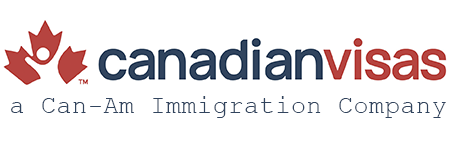A new act, the International Credentials Recognition Act, will come into effect in British Columbia (B.C.) on July 1,2024, aiming to significantly ease the licensing process for qualified professionals in 29 occupations. This initiative targets 18 regulatory authorities, requiring them to remove unnecessary barriers for internationally trained individuals.With this act, experienced professionals with certifications obtained outside of Canada will have a smoother path to pursuing and gaining recognition for their qualifications.
One of the key changes addresses the long-standing challenge faced by many newcomers – the catch-22 of Canadian work experience requirements. Previously, individuals needed Canadian work experience to obtain a license, but were unable to gain that experience without a license in the first place. The new act eliminates this requirement for qualified professionals, opening doors for them to contribute their skills.
The act also promotes fairness by mandating regulatory bodies to charge the same fees to both international and domestic applicants. Additionally, unnecessary English language testing requirements will be eliminated, reducing unnecessary hurdles for qualified individuals.
To ensure public accountability and transparency, the act introduces additional data collection and reporting obligations for regulatory authorities. This will be accompanied by enforcement mechanisms to guarantee compliance with the legislation.
Details and Timeline
Regulations implementing the act will be rolled out in stages. A significant step will occur on July 1, 2025, with the removal of Canadian work experience requirements for licensing by 18 regulatory bodies that currently have this as a prerequisite.
While some regulations take effect later, the core aspects of the act will be in place on July 1, 2024. These include:
- Establishing clear guidelines for the superintendent of international credential recognition to issue exemptions to regulatory bodies with a well-founded justification for requiring Canadian work experience in specific cases.
- Setting a maximum administrative penalty of $100,000 for non-compliance.
Key Features of the International Credentials Recognition Act
The act introduces several key features to improve the overall experience for internationally trained professionals:
- Reduced need for re-submitting English language tests: Applicants who have previously submitted valid English language test results will not be required to provide new ones.
- Standardized fees: Regulatory bodies will be mandated to charge the same fees to both international and domestic applicants.
- Improved efficiency: The act aims to ensure that candidates receive the information they need to obtain professional certification swiftly and without unnecessary delays.
- Reduced wait times: The province will require regulatory bodies to make licensing decisions within a reasonable timeframe.
- Increased transparency: Regulators will be required to make all information about their certification assessment processes readily available online.
- Enhanced accountability: The act introduces new reporting requirements and grants enforcement authority to ensure regulatory bodies are held accountable.
- Establishment of a dedicated superintendent role: A new superintendent of international credential recognition will be appointed. This individual will be responsible for promoting fair credential recognition practices, reviewing the performance of regulatory bodies, and overseeing compliance with the new legislation.
New International Credentials Recognition Act: Full List of 18 Regulatory Authorities
- Applied Science Technologists and Technicians of BC
- Architectural Institute of BC
- Association of BC Forest Professionals
- Association of BC Land Surveyors
- Association of Professional Engineers and Geoscientists of BC
- BC College of Social Workers
- BC Institute of Agrologists
- BC Registered Music Teachers’ Association
- BC Society of Landscape Architects
- College of Applied Biologists
- College of Veterinarians of BC
- Director of Teacher Certification (and BC Teachers’ Council)
- Director of the Early Childhood Educator Registry
- Emergency Medical Assistants Licensing Board
- Law Society of BC
- Organization of Chartered Professional Accountants of BC
- Society of Notaries Public of BC
- Superintendent of Real Estate (and BC Financial Services Authority)
New International Credential Recognition Act: Full List of 29 Occupations
- registered music teacher
- professional engineer
- professional teaching certificate holder
- land surveyor
- early childhood educator
- landscape architect
- early childhood educator assistant
- applied science technologist
- conditional teaching certificate holder
- certified technician
- social worker
- veterinarian
- registered clinical social worker
- lawyer
- professional biologist
- architect
- applied biology technician
- notary public
- registered biology technologist
- emergency medical assistant, including paramedics
- professional geoscientist
- chartered professional accountant
- registered professional forester
- associate real estate broker
- registered forest technologist
- managing real estate broker
- professional agrologist
- real estate representative
- technical agrologist

https://consultations.canadianvisas.com/canadianvisas-generalconsultation





0 Comments